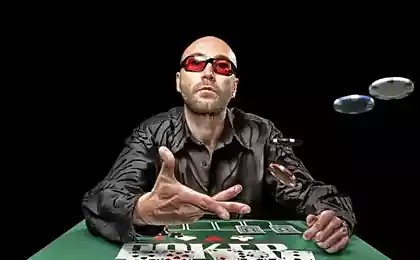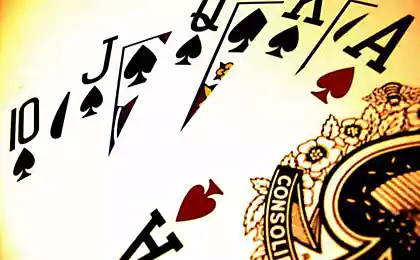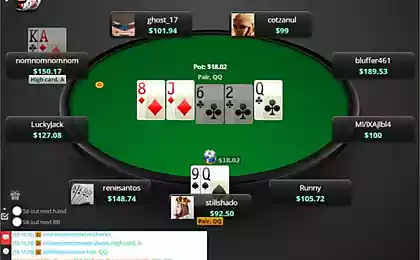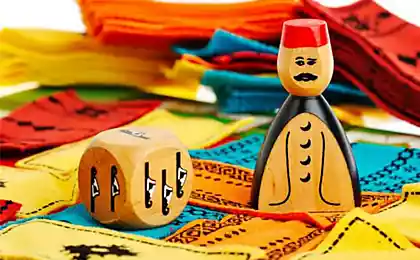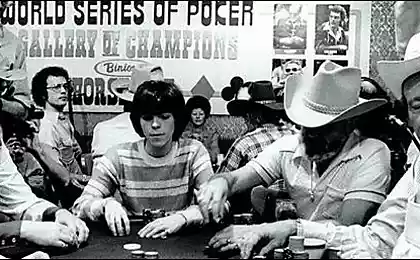1131
Self-deception and poker: How High Self-Esteem Affects Players’ Financial Results and Psychology

Of course, you are no different than many of your opponents who think the same way. However, high self-esteem negatively affects your financial performance, because you choose expensive games that gather more qualified participants at the poker table, which you can not win regularly. In addition, you are fooling yourself about your motives for playing poker. You will object and say that I am playing for a monetary reward. Oh, no, no. An overwhelming number of players seek to get a charge of adrenaline from experiences and excitement or they are interested in competing with someone, and also want to communicate with people or want to actively spend a couple of hours of free time. Only a very small percentage of players actually play for the sake of winning. Most likely, visiting the site leon casino you are no exception and belong to the total mass of participants in poker tables.

The desire to prove to yourself that you play well and can really win against experienced opponents leads to unnecessary losses, causing significant harm not only to your finances, but also, with an unfortunate coincidence, your psychological and moral state, leading to depression.
Of course, you will never think that the cause of defeat is your bad game. You are willing to believe anything, like bad luck. But practice shows unequivocally that the factor of successful or not very coincidence of circumstances is essential only for short periods of time. If you are constantly in the red, then it is not fortune that makes you grimaces, but you yourself try to jump above your head, that is, skill.

Most players have no idea that they are not playing at the level they can afford. Statistics show that the degree of overestimation of their capabilities directly depends on the professional training of players. Thus, if a player plays out of hand badly, then he really thinks that with some luck he can win a million at some prestigious poker tournament. To land a little such a grief player, it is enough to teach him some of the wisdom of playing poker. With the growth of experience and qualification, the player begins to assess his strength more realistically, no longer counting on just getting a million prize funds.

Why don’t players evaluate their abilities objectively? Yes, simply because of the peculiarities of the functioning of human memory, which quickly erases negative memories, for example, about all the mistakes made by an individual at the poker table, but retains situations that cause vivid positive emotions - victories and decisions that lead to them. So you get the impression of a super player who regularly wins big banks.
If you ask about your chances of winning an expensive tournament, you will most likely answer yes. A professional team will play against you. However, the probability of your victory on a professional tennis court or at the chessboard you will soberly assess, leaving yourself no chance of winning. The Northern assessment of your qualifications contributes to the apparent simplicity of poker in general and its rules in particular. In principle, your conceit plays into the hands of professional poker sharks, because they earn a lot of money every day from poorly trained players, allowing them to live a chic life. By the way, poorly playing participants are not accidentally called a poker fish. The fish does not understand that it is not able to fight sharks on equal terms, so everything swims and swims, returning again and again to the poker table with experienced opponents, parting with hard-earned money.
The short-term gain magically affects your gaming perception, lifting you to heaven with happiness. Luck deprives you of the mechanisms of sober self-esteem, strengthening your confidence that luck and bad luck occupy the most important place in poker. It seems to you that by playing badly and stupidly, you can achieve more results than after long training in correct behavior and logical thinking, as well as comprehensive practice. Lasting for some time, the winning draws will consolidate in you confidence in your abilities and abilities. You know that you are already an experienced player with decent skills, even though you are not. You do not want to change anything in your style of play, do not try to learn and train, which will undoubtedly lead to losses. Don’t be discouraged by these criticisms, you’re not alone, as virtually everyone on the poker table considers themselves an advanced player. Better draw conclusions and correct yourself.
Self-deception is also subject to experienced players who regularly beat many. Their behavior is no different than weak players. The experienced player also strives for more expensive games, gradually moving to higher limits until he reaches a level where his opponents will be a head higher. The advanced player quietly turns into a poker fish, but he does not want to give up, staying at this limit for a long time, fighting for survival and losing.
Answering the age-old question “what to do”, we advise not to choose expensive games, deliberately sliding into cheap types of games in which it will be easy for you to constantly beat, even with your limited capabilities. Read books about poker, solve poker problems, analyze examples and your game - this will help you improve your skills. You will be able to find and correct your mistakes.
My husband and I are not poor, we manage to help my parents a little, but recently they upset me with their request.
The Rise of Olympus: Gods and Bonuses
